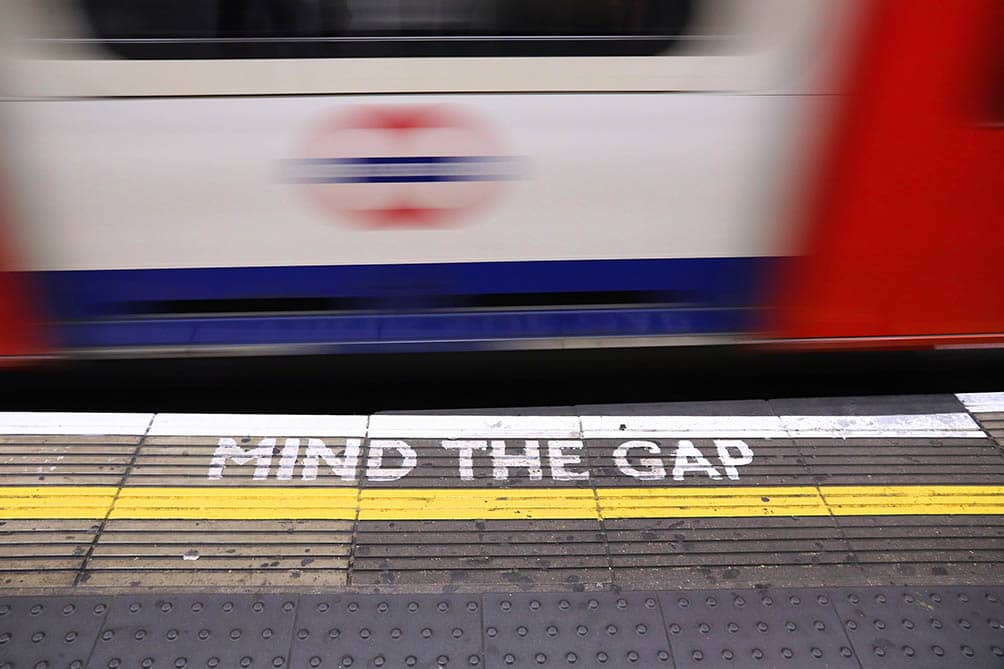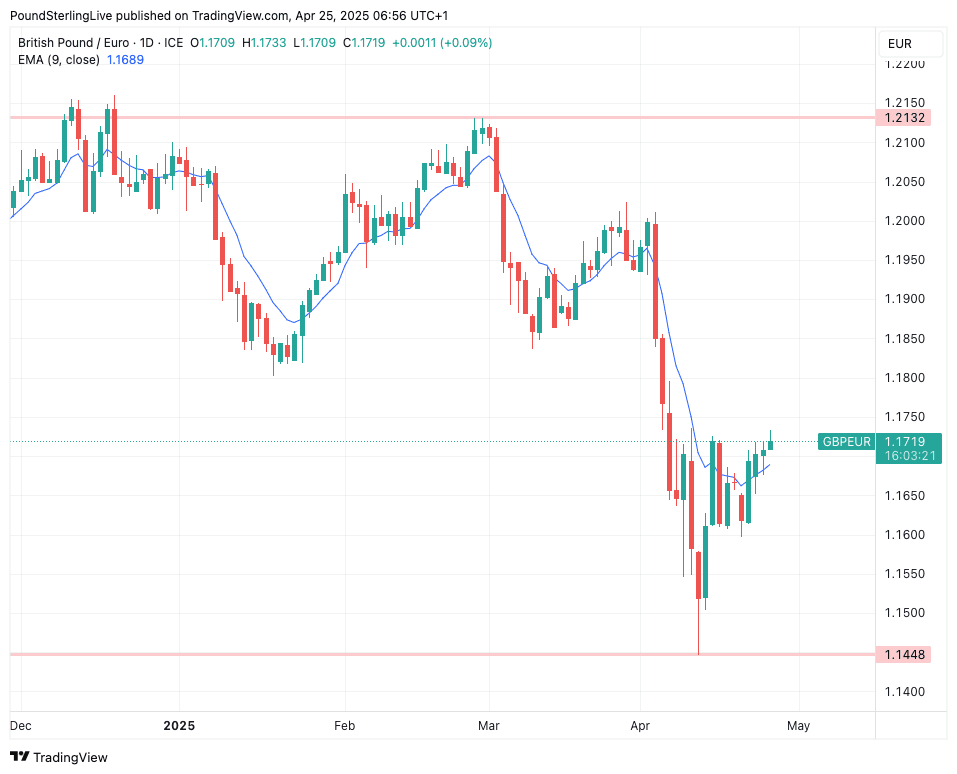
Image © Adobe Images
The Pound-to-Euro exchange rate is likely to remain under pressure as surveys point to divergent fortunes in the Eurozone and UK.
Pound Sterling should be higher against the Euro on Friday, benefiting from a global improvement in investor sentiment. Instead, gains are tepid at best, and this is thanks to deteriorating domestic sentiment.
Gfk's consumer confidence measure for April is out, and it shows sentiment has fallen to its weakest since November 2025.
The Consumer Confidence Index, considered a forward-looking indicator of economic health, decreased by four points to -23 in April, with all sub-component measures down in comparison to last month’s announcement.
Consumers are the engine of the UK's services-led economy, meaning the economy will struggle if they go on strike. And they have reason to:
"Consumers have not only been grappling with multiple April cost increases in the form of utilities, council tax, stamp duty, and road tax, but they are also hearing dire warnings of renewed high inflation on the back of the Trump Tariffs," says Neil Bellamy, Consumer Insights Director at GfK.
The survey showed an eight-point fall from -29 to -37 in how people see the wider economy in the coming year, and a five-point dip for the past year’s economic performance.
The future indicator on personal finances has also slipped badly, dropping four points to -3.
This follows on from the S&P Global PMI survey, released earlier this week, which also showed a marked deterioration in UK economic activity. The composite reading of 48.2 suggests the economy shrank in April.
"Businesses are reporting more of a struggle to keep their heads above water in April," says Chris Williamson, Chief Business Economist at S&P Global Market Intelligence.
Eurozone-UK Economic Divergence to Pressure GBP/EUR
Based on signs of economic deterioration, we are picking up more chatter about the potential for a 50 basis point Bank of England interest rate cut in May, which would potentially weigh heavily on Pound exchange rates.
These downbeat UK economic surveys contrast with those coming out of the Eurozone, which show a more benign outlook.
The Ifo survey's business climate indicator from Germany unexpectedly rose to a 9-month high of 86.9 in April (vs. 85.2 expected), suggesting plans by the new German government to boost spending are helping.
Divergent economic fortunes between the UK and Eurozone would suggest the route of least resistance for the Pound-Euro exchange rate is to the downside.
"We can expect UK survey weakness to contrast with German survey resilience, as demonstrated by the Ifo. Contrasting macro fortunes underline a continued EUR/GBP upside bias," says a note from CIBC Capital Markets.
"Only a break below the 10 April low at 0.8519 would negate the expectations of testing the 21 April high at 0.8624," adds CIBC.
Above: GBP/EUR has come under pressure in April as rising trade tensions favour the euro.
A move in EUR/GBP to 0.8624 would give a GBP/EUR exchange rate just below 1.16.
Although the GfK data disappointed, the market traded the Pound higher against the Euro, with eyes seemingly fixed on global issues.
Improving investor sentiment as Trump rows back on his 'hawkishness' on tariffs is supporting markets and the Dollar and causing a retreat in those assets that have benefited the most from Trump's approach.
The Euro is a standout beneficiary of this trade, meaning any reversals are likely to weigh on it, as has been the case this week.
Should the global picture continue to settle, then domestic fundamentals come into play again. Should the market start to trade relative UK economic weakness, and bet on faster Bank of England rate cuts, then the Pound could come under more sustained pressure.

